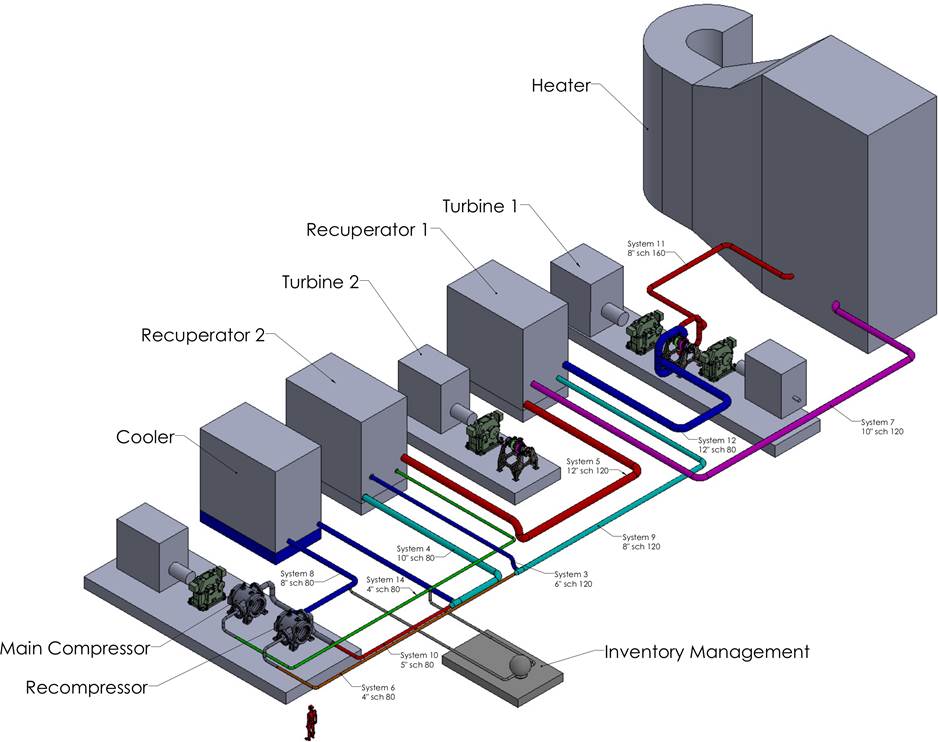
The Department of Energy said Monday it had awarded up to $80 million to the Gas Technology Institute (GTI), Southwest Research Institute (SwRI), and General Electric Global Research (GE-GR) to design, build, and operate a 10-MWE (megawatts electrical) supercritical carbon dioxide (sCO2) pilot plant test facility in San Antonio, Texas.
Supercritical CO2 technology, which uses CO2 instead of steam to turn turbines, producing electricity more efficiently with fewer emissions, has performed well in small-scale tests to date, Michael McDowell, program manager at GTI, told GHG Daily on Monday. “I think we understand the science of this cycle fairly well now, but there’s a lot of engineering left to do, and the scale of this project is appropriate for understanding those engineering challenges,” he said.
“The selection of this test facility will help to further our nation’s climate goals by bringing us one step closer to deploying this exciting technology on a commercial scale,” Franklin Orr, DOE’s undersecretary for science and energy, said in a press release.
The facility will be located at SwRI headquarters in San Antonio, the nonprofit research and development organization said in a separate release. “Southwest Research Institute has been conducting research that supports the energy sector for nearly 70 years. We are proud to be part of a project that will demonstrate the world’s first large-scale sCO2power plant,” said SwRI President Adam Hamilton in the release.
As the lead of the six-year project, GTI will oversee system engineering and test management. GE-GR will head up the design and fabrication of the turbomachinery necessary for energy production. SwRI will be responsible for hosting the pilot plant as well as test facility design, implementation, and operation. Turbomachinery evaluation will also fall to SwRI.
Once the contract and statement of work with DOE are finalized, the team will begin a 15-month engineering phase, McDowell said. “We’ve got the conceptual design done, but a lot more analysis and details to be put together, engineering drawings to be worked out, key components to be specced and procured,” he said.
The construction phase of the project is expected to take two years and will be followed by two years of testing. “The test program will go through all operating modes that we would expect a power plant to go through: start up, shut down, some endurance operation, trying to cover the bases of operation,” McDowell said.
After this project is completed, it will be time to do it all again with a larger scale project. “This project should create the level of confidence to develop larger-scale plants,” McDowell said. “You want to make jumps of scale in increments. You wouldn’t want to do a 1,000-megawatt plant when you’ve only done a 1 MW plant, so you try to do it stepwise as you gain confidence.”
The DOE-funded project is intended to be the first commercially feasible sCO2 facility for high temperature and high-efficiency system testing, according to the DOE release. “The information generated through this project has the potential to inform scale-ups for larger scale demonstrations in the future. While sCO2 technology has been proven in a lab setting, this pilot project will provide important data on potential challenges of operating it on a larger scale,” the DOE release says.